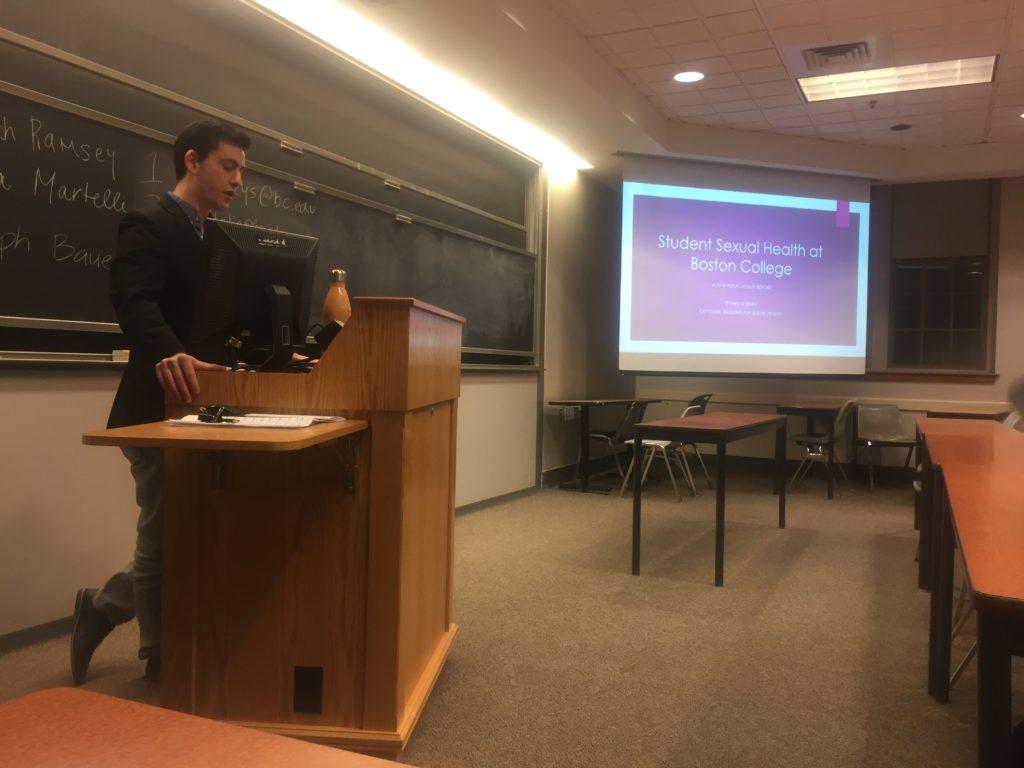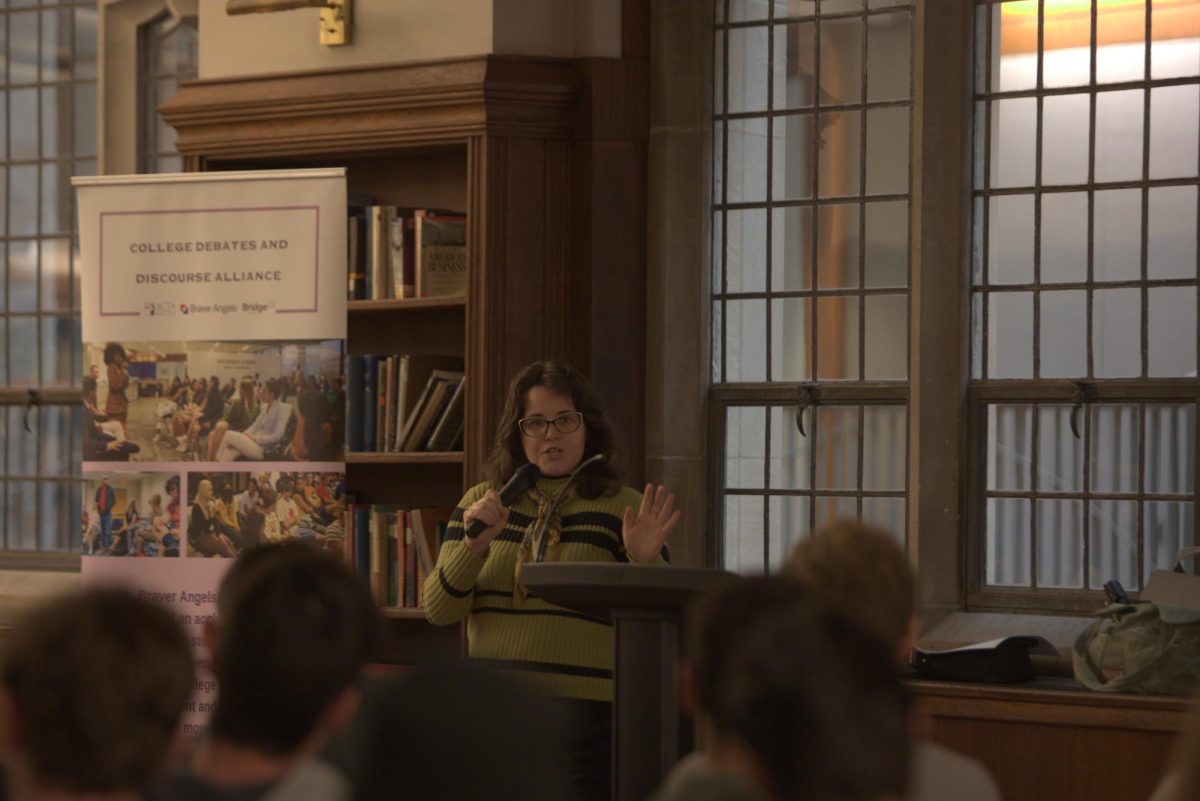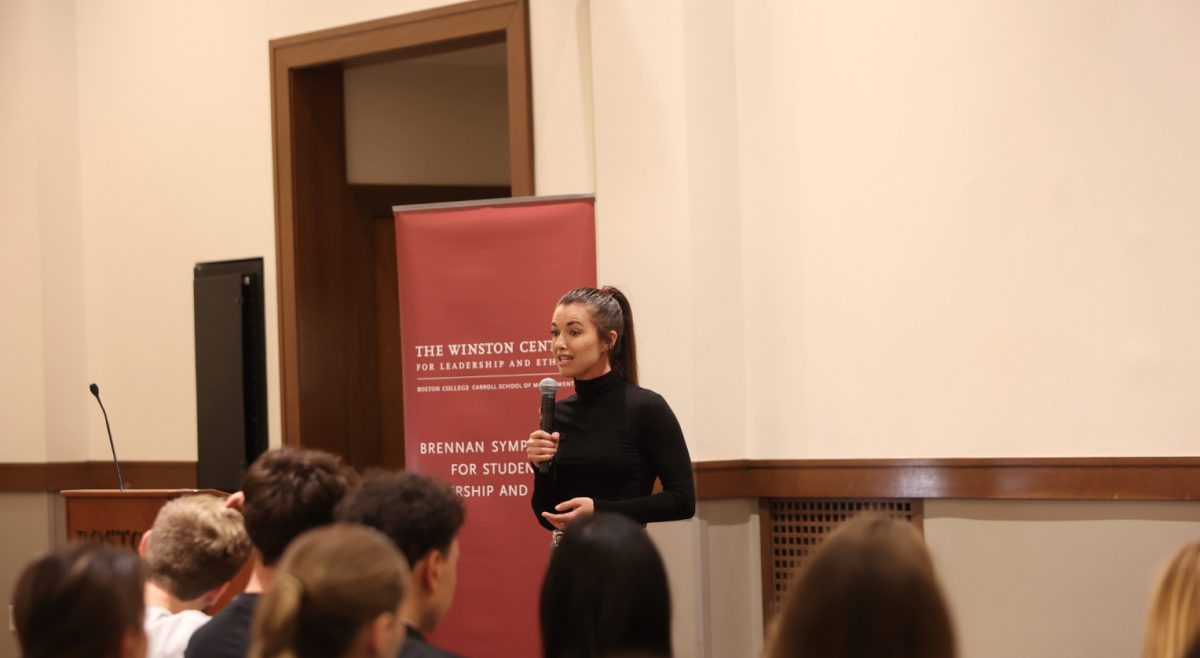The Student Assembly (SA) of the Undergraduate Government of Boston College debated a resolution called “A Sexual Health Referendum at Boston College” on Tuesday.
The resolution was passed with 18 votes in favor, four votes in opposition, and three abstains.
Sponsored by Connor Kratz, MCAS ’18; and co-sponsored by Patrick Madaya, MCAS ’18, and Nicole Booth, MCAS ’19, the resolution stated that UGBC would affirm that the University should allow the group Students for Sexual Health to distribute contraceptives to the BC community and have meetings without official University funding or recognition. The organization is not registered with the University due to the topics it tends to discuss—sexual health and safety in a college environment, as well as being a subsidiary of Planned Parenthood.
Kratz paired this resolution with data gathered from a survey he created, “Student’s Sexual Health at Boston College: A Comprehensive Public Health Survey.” Each class was represented in the survey with the 393 students who chose to participate, consisting of 102 males and 290 females. The anonymous survey gathered data on students’ sexual activity, knowledge, and opinions on the implementation of this resolution.
According to Kratz’s survey, 80 percent of participants are sexually active and 45 percent additionally responded that they had had two or more sexual partners in the past year.
“As a Catholic university, there’s been little discussion on this topic,” Kratz said.
The survey also concluded that 44.3 percent of participants do not know where to find resources on sexual health or contraception, while 42.5 percent reported that they do not know where testing for sexually transmitted diseases is on campus.
“Birth control [can be accessed] from University Health Services, but you’re not allowed to say you want a prescription for sex,” an anonymous survey participant said. “They said I have to claim to need it for cramps, bad periods, acne, etc.”
“Students for Sexual Health offers all of these, but they’re kind of hard to find unless you happen to know one of the people in the group,” another participant said.
According to Kratz and Gabby Zabbo, CSON ’18, as members of Students for Sexual Health, their hope is to destigmatize the conversation about sexual health on campus. The group is not asking the University to fund its cause, but to allow it to hold meetings on campus to be sexual health resource.
“What I don’t think is relevant in this point in time is the Student Assembly taking a stance one way or another,” said Sam Szemerenyi, MCAS ’20. “If we keep the language as it is now, the debate period will turn into people imposing their personal opinions.”
Kratz emphasized that the SA should gain student feedback on the referendum.
“As student leaders, it is really up to us to decide because I think it is clear where the students stand,” Kratz said, “If we posed it [the referendum] without saying ‘UGBC affirmed’, I don’t think it really changes anything, but ideally, we should vote on what our constituents think.”
Featured Image by Samantha Karl / Heights Staff
Correction, 8:09 p.m.: The original version of this article stated that the resolution did not pass due to time constraints. Nonetheless, it was passed with 18 votes in favor.













